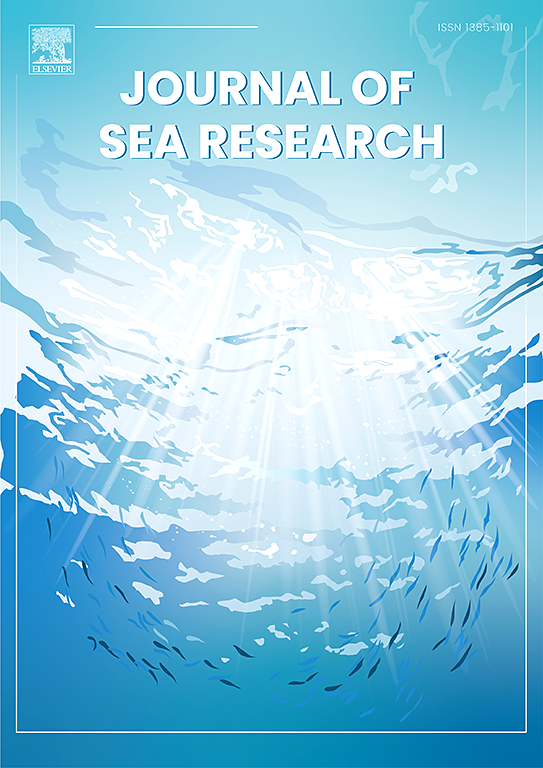Correlation analysis of failure risk factors in automated container port logistics systems from a resilience perspective
IF 2.9
4区 地球科学
Q2 MARINE & FRESHWATER BIOLOGY
引用次数: 0
Abstract
This paper aims to explore the correlations among failure risk factors of automated container port logistics systems from a resilience perspective. Based on the Wuli-Shili-Renli (WSR) theory and a multi-dimensional resilience framework, five key categories of risk factors affecting system resilience are identified: port infrastructure, port logistics operation organization, port personnel, port operational environment, and port emergency response and management. Through expert interviews, system component analysis, and a review of related literature across these five dimensions, 36 specific risk factors were identified to establish an initial set of system failure risk factors. Subsequently, a dual-factor screening method combining grey relational analysis and rank correlation was applied to simplify the initial set, constructing a system failure risk factor index system from a resilience perspective. Finally, a comprehensive model combining the Fuzzy Decision-Making Trial and Evaluation Laboratory (FDEMATEL) method and the Total Adversarial Interpretation Structure Model (TAISM) was proposed. This model identifies and quantifies the complex correlations among system failure risk factors from a resilience perspective, revealing their relative importance and their impact on system resilience. The results indicate that system resilience is primarily influenced by internal factors such as the smoothness of collection and distribution operations, infrastructure service capacity, and the stability of technical support systems. External factors, such as the prevention capability for major emergency threats and the improvement of government supervision and coordination feedback mechanisms, also significantly impact system resilience. The complex interactions among key factors have a profound effect on system resilience, underscoring the need to enhance coordination and management measures to strengthen overall system resilience. This study provides a theoretical foundation for developing targeted strategies to enhance the resilience of automated container port logistics systems.
从复原力角度分析自动化集装箱港口物流系统故障风险因素的相关性
本文旨在从复原力的角度探讨自动化集装箱港口物流系统故障风险因素之间的相关性。基于 Wuli-Shili-Renli(WSR)理论和多维弹性框架,确定了影响系统弹性的五大类风险因素:港口基础设施、港口物流运营组织、港口人员、港口运营环境以及港口应急响应和管理。通过专家访谈、系统组成分析以及对这五个方面相关文献的查阅,确定了 36 个具体的风险因素,建立了一套初步的系统故障风险因素。随后,采用灰色关系分析和等级相关性相结合的双因素筛选法对初始因素集进行了简化,从复原力的角度构建了系统故障风险因素指标体系。最后,结合模糊决策试验与评估实验室(FDEMATEL)方法和全对抗解释结构模型(TAISM),提出了一个综合模型。该模型从复原力的角度识别并量化了系统故障风险因素之间的复杂关联,揭示了这些因素的相对重要性及其对系统复原力的影响。结果表明,系统恢复能力主要受内部因素的影响,如收集和分配操作的平稳性、基础设施服务能力和技术支持系统的稳定性。外部因素,如对重大紧急威胁的预防能力、政府监督和协调反馈机制的完善等,也会对系统恢复力产生重大影响。各关键因素之间复杂的相互作用对系统恢复力有着深远的影响,因此需要加强协调和管理措施,以增强系统的整体恢复力。本研究为制定有针对性的战略以增强集装箱自动化港口物流系统的复原力提供了理论基础。
本文章由计算机程序翻译,如有差异,请以英文原文为准。
求助全文
约1分钟内获得全文
求助全文
来源期刊

Journal of Sea Research
地学-海洋学
CiteScore
3.20
自引率
5.00%
发文量
86
审稿时长
6-12 weeks
期刊介绍:
The Journal of Sea Research is an international and multidisciplinary periodical on marine research, with an emphasis on the functioning of marine ecosystems in coastal and shelf seas, including intertidal, estuarine and brackish environments. As several subdisciplines add to this aim, manuscripts are welcome from the fields of marine biology, marine chemistry, marine sedimentology and physical oceanography, provided they add to the understanding of ecosystem processes.
 求助内容:
求助内容: 应助结果提醒方式:
应助结果提醒方式:


